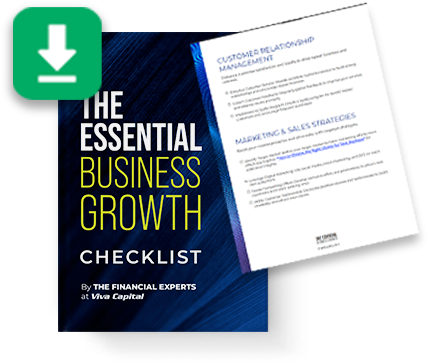
One in two small business owners is making at least one of the financial mistakes on this page. Is it you? Find out how even the savviest business owners go wrong with their small business financial management and what you can do about it if you’re making one of the common financial pitfalls mentioned below.
1. Poor Budgeting
When you’re just starting out, you may have a rough estimate of what you need to purchase and how much it will cost. Particularly if you’re paying for all your expenses out of your own funds, it’s easy to think you’ll stay within a reasonable limit since you decide when and how much to spend. Unfortunately, this may be why one in five companies with ten or fewer employees do not create any kind of budget and why about half of all small businesses don’t have a written budget, per Clutch research.
The problem with this logic is that you’re running your business for profit and leaving money to chance. If you don’t have a roadmap, it’s hard, if not impossible, to reach your destination. Always create a budget ahead of time. It’s ok if you need to adjust budgets as you go, but having a written plan keeps your goals top of mind, and you work toward them.
2. Not Paying Enough Attention to Loan Interest Rates and Other Charges
About a quarter of businesses have a funding shortfall even after applying for some form of financing, according to the latest Small Business Credit Survey. As lenders tighten up their belts, it’s becoming increasingly difficult for small business owners to feel anything but grateful for receiving any amount of funding.
Unfortunately, this means small business owners often get saddled with huge interest rates and additional charges tacked onto their loans. Audit how much you’re paying to borrow before accepting any loans. If you’re already locked into loans, take a hard look at the associated fees and see if you can do better. You’ll be offered better terms as your financial strength improves, so don’t assume you’re getting the best possible deal.
3. Confusing Cash and Profit
One of the biggest money mistakes business owners make is confusing cash with profit. Let’s say you run a staffing firm, and you know you’re bringing in $50 for each hour worked, and it only costs you $40 per hour to get someone in place. You’re running a profitable business and will likely show a positive profit margin at the end of the year.
Now, let’s break that down. This week, you will perform $100,000 worth of services, generating $20,000 in profit. You have $80,000 in expenses. Even though you’ll eventually see that $100,000 payment from the client, it’s not coming in for another six weeks. You can’t cover payroll. If you don’t have another way to generate cash or don’t have $80,000 sitting in your bank account, your team will leave, and your business could very well close. As you can see, being profitable and having cash are two very different things.
4. Ineffective Cash Flow Management
The example above, in which the business ran short on cash before payroll, is one way businesses go wrong with cash flow management. However, you can run short because clients don’t pay, you’ve overspent, paid bills before they needed to be paid, and more. Ineffective cash flow management can also refer to not making the most of your cash. For construction businesses, utilizing Construction Quick Pay solutions can help mitigate cash flow issues caused by delayed client payments and keep operations running smoothly. If money is sitting in your bank collecting dust rather than being put toward investments and business growth, you’ll strangle your business too. Combined, issues related to cash flow management are a factor in 82 percent of small business closures, according to the National Federation of Independent Business (NFIB).
5. Making Big Purchases Too Early On
Your business needs lots of things. There’s equipment, office supplies, inventory, and more. You might even need some big-ticket items, such as vehicles or machines. You’ll also likely need some form of business space. Bear in mind that just because you require something to operate doesn’t necessarily mean you need to purchase it; this is a common business mistake.
Buying large items too soon leaves you cash-poor. It also means you’re likely paying more to finance those items than you would if you waited until your business was financially stronger.
Instead, start with just the items your business really needs and stick to low-budget options rather than equipment with all the bells and whistles. Then, shop around to ensure you get the best pricing. If you really need a big-ticket item, explore all your options, from equipment financing to invoice factoring, to ensure you’re getting the best funding for your growth stage.
6. Not Choosing a Legal Structure for Your Business
Generally speaking, if you don’t officially choose a legal structure for your business, it’s treated as a sole proprietorship. That’s a problem for several reasons.
- Your business looks unprofessional. Your social security number and name will be used on business documents. Established companies will see this as unprofessional and may refuse to do business with you.
- You’re responsible for business debts. As a sole proprietor, you’re personally responsible for anything that happens with the business. If you have a debt your business can’t pay, the creditor can seize your home and other personal assets.
- You’re responsible for any legal issues. For example, if someone slips and falls on your sidewalk and it’s determined that your business is responsible, you’re paying whatever the court awards the plaintiff. Considering 43 percent of small business owners have been involved in a civil lawsuit or threatened with one, according to Score, this is too big of a risk for most companies.
- It’s harder to get business funding. Banks understand the risks of being a sole proprietor and know that most sole proprietors are only one slip-and-fall or bad debt away from defaulting on their loan. They’re less likely to lend to sole proprietors as a result.
It’s possible that your business may be better served by operating as a sole proprietorship, but it’s worth discussing with a business attorney to be sure.
7. Having Too Much Inventory
Sometimes, businesses stock up because they’re worried their supplier will run out of something or because they get a better deal when they order in bulk. These are valid reasons to wind up with a surplus, but it’s important to consider the cost of that surplus. Excess inventory takes up space. It also eats up money that might help your business more if funneled toward growth initiatives. If you’re sitting on a stockpile, find out what it’s costing you to keep it. If it’s not worth the cost, consider liquidating some or all the surplus.
8. Not Having a Contingency Fund
An emergency can instantly tip the scales even if you’re carefully managing cash flow. Maybe a major piece of equipment will go down, your supplier will unexpectedly raise their rates, or your best-paying client will miss their deadline. You may be tempted to take out a high-interest loan or secure funding through another unfavorable source if you don’t have cash set aside to cope with these situations.
9. Not Separating Business Finances and Personal Finances
In life, separating business and personal is a practice most people prioritize. As a small business owner, your finances should be no different – even though this can prove difficult. One of the most common financial pitfalls for small businesses is not separating business finances from personal finances. More than a quarter of small business owners mix their business and personal funds, according to Small Business Trends. It makes sense on the surface. You’re probably using your personal funds to pay for the business. You might be the only one drawing a paycheck. You might only be drawing from the business if funds are available, rather than taking a traditional paycheck.
However, doing this makes it very difficult to gauge the financial health of your business and budget. It can create problems at tax time or if you try for a business loan later too. Always set up an account for your business and keep your personal funds and personal expenses separate to avoid serious business blunders.
10. Not Having Enough Working Capital
Working capital is cash available to spend. It’s not cash flow. It’s not profit. It’s not your contingency fund. It’s the cash you have available at any given moment to cover your business expenses. That’s where a lot of businesses go wrong. They think they’re set up to pay their bills because they have strong profit or cash flow. Or, they think they can dip into their emergency fund if things get tight. All these approaches create the risk that the business won’t be able to make ends meet as bills come in.
If you’re unsure how much working capital you really have on hand or how to improve it, it helps to understand the net working capital formula and how to calculate it based on your current assets and liabilities. Accurately tracking this figure can help you determine whether your business is financially equipped to handle its short-term obligations.
Asset-Based Lending for Long-Term Financial Stability
While managing cash flow and avoiding common financial mistakes is crucial for business growth, securing adequate working capital can sometimes require a more comprehensive financial strategy. For businesses that have outgrown traditional methods like invoice factoring, asset-based lending for small businesses can provide a reliable alternative. By leveraging assets such as equipment or inventory, asset-based lending offers a more flexible and scalable solution to meet long-term financial needs. This approach ensures that businesses have access to larger capital to support expansion, investments, or acquisitions without compromising day-to-day operations.
Avoid Financial Mistakes and Be Prepared with Invoice Factoring
Invoice factoring is not a loan. Instead of borrowing cash and paying it back with installments, you sell your unpaid B2B invoices to a third party known as a factor or factoring company. You get cash instantly and are free to move forward. When your client pays their invoice, the balance is cleared.
Growing businesses often use factoring to bridge payment gaps, deal with emergencies, and scale. It’s flexible too. You can choose which invoices to factor and when to factor them, so you’re only accelerating your cash flow as needed. If factoring sounds like the ideal funding solution for your business, request a complimentary quote from Viva.
- How Mid-Sized Companies Use Factoring to Drive Growth - May 23, 2025
- 10 Best Cash Flow and Budgeting Tools for Business Owners - May 2, 2025
- Business Factoring Success Stories: How Real Brands Benefit - March 31, 2025



